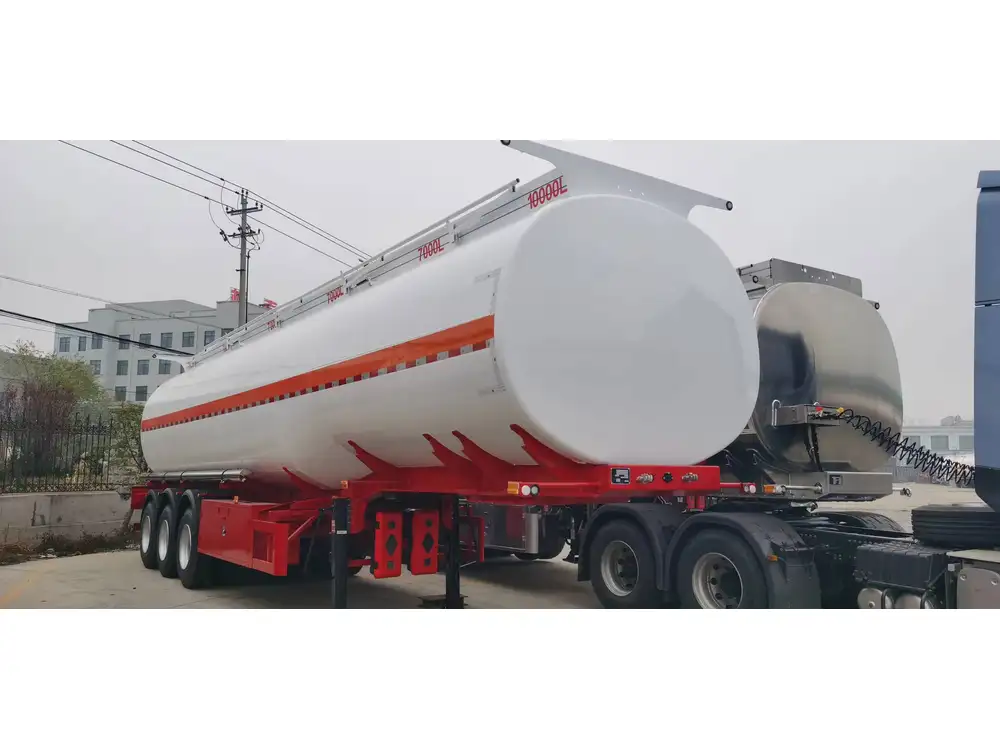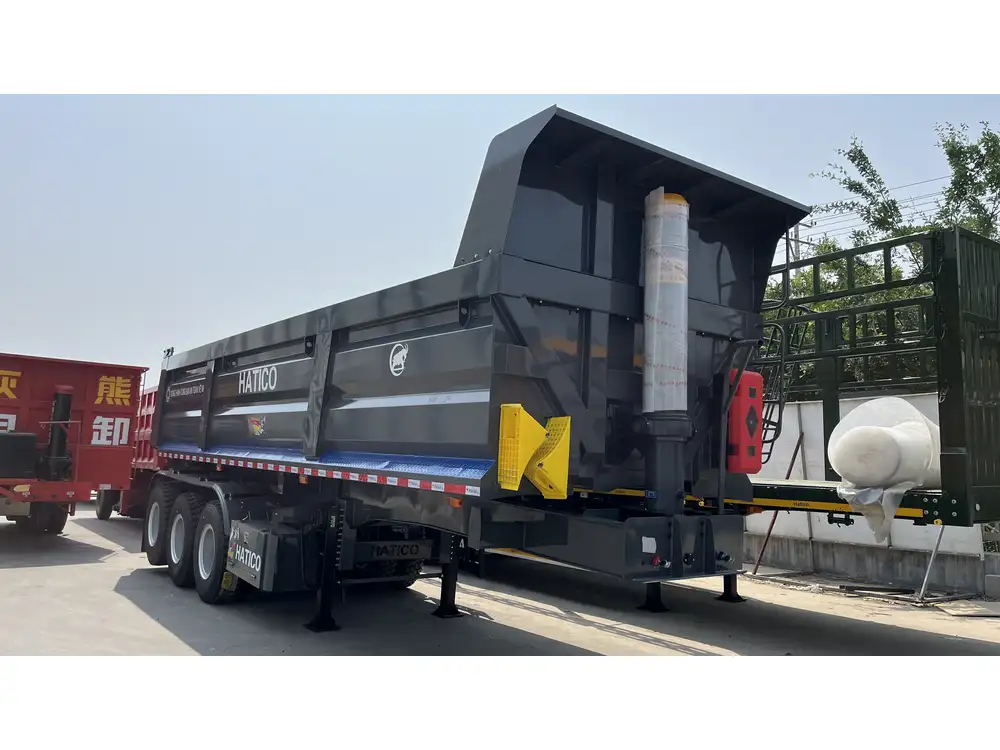When it comes to transporting materials efficiently, dump trailers serve as a vital tool in various industries. However, the question of whether a Commercial Driver’s License (CDL) is required for operating a dump trailer often arises. Understanding the regulations surrounding this necessity is crucial for ensuring compliance and avoiding penalties. This article will provide an in-depth examination of the CDL requirements for dump trailers, while also outlining best practices and key considerations for prospective operators.
What is a Dump Trailer?
A dump trailer is a specialized trailer designed for hauling and unloading bulk materials, including gravel, sand, dirt, or construction debris. These trailers typically come equipped with hydraulic systems that enable the trailer bed to tilt, allowing for quick and efficient unloading. Given their common use in construction, landscaping, and waste management, the operational requirements for dump trailers can vary significantly based on local, state, and federal regulations.
Types of Dump Trailers
| Type of Dump Trailer | Description | Typical Uses |
|---|---|---|
| Standard Dump Trailers | These have a basic hydraulic lift system for easy loading and unloading. | Construction, landscaping, and dirt hauling. |
| Side Dump Trailers | Designed to unload materials to the side, offering flexibility in tight spaces. | Road construction, civil engineering projects. |
| End Dump Trailers | Unload materials at the back, suitable for loose materials. | General construction and aggregate hauling. |

Understanding CDL Requirements
General CDL Regulations
A CDL is generally required when a vehicle weighs more than 26,001 pounds, is towing a trailer exceeding 10,000 pounds, or is designed to transport 16 or more passengers (including the driver). Because dump trailers can vary significantly in size and weight, understanding these thresholds is essential.
When is a CDL Required for Dump Trailers?
Combination Weights: If the Gross Combination Weight Rating (GCWR) of your vehicle and dump trailer exceeds 26,001 pounds, a CDL is often required. This encompasses various configurations, so confirming the weight ratings of both your tractor and trailer is crucial.
State Regulations: Different states may have additional requirements regarding CDL regulations and specific endorsements. For instance, a Class A CDL might be mandated in states that adhere strictly to federal guidelines, while others might allow for exceptions under certain conditions.
Material Transport: If you’re using the dump trailer to transport certain types of materials, especially hazardous materials or oversized loads, additional endorsements may also be necessary.

Key Factors Influencing CDL Necessity
| Factor | Description |
|---|---|
| Trailer Weight | Total weight of the trailer and its contents can trigger CDL requirements. |
| Vehicle Configuration | The combination of towing vehicle and trailer weight classification matters. |
| Material Type | Specific materials being transported can necessitate a CDL. |
| Local Regulations | Always check state and local laws to ensure compliance. |
Benefits of Obtaining a CDL
While navigating through muddy regulations and requirements may seem cumbersome, obtaining a CDL provides myriad advantages for those in the business of hauling and transporting:
- Increased Legitimacy: Having a CDL enhances your reputation and credibility as an operator.
- Broader Opportunities: Certification opens doors to additional job opportunities and potential contracts, especially with larger companies that require compliant drivers.
- Educational Advantage: CDL training provides comprehensive education on safe driving practices, vehicle maintenance, and proper handling of materials.
- Insurance Benefits: Many insurance providers favor drivers with a CDL, potentially resulting in lower premiums.
What Happens if You Operate Without a CDL?
Operating a dump trailer without the necessary CDL can lead to severe repercussions, including:
- Fines and Penalties: Exceeding weight classifications without appropriate licensing can result in significant fines.
- Legal Consequences: Repeat offenders may face legal action or further sanctions, which can complicate your business operations.
- Increased Insurance Rates: Driving without a CDL can affect your insurance policy, leading to higher rates or even cancellation.

Best Practices for Operating a Dump Trailer
Safety Tips
Pre-Trip Inspections: Conduct thorough inspections of both the towing vehicle and the dump trailer before each trip. Check for mechanical issues, tire conditions, and functional hydraulic systems.
Load Distribution: Ensure that loads are evenly distributed within the trailer to maintain stability and prevent tipping during transit.
Use of Safety Equipment: Always wear seatbelts, and ensure that other protective gear (gloves, hard hats) is available if handling materials onsite.
Maintenance Guidelines
| Maintenance Item | Frequency | Action Required |
|---|---|---|
| Tire Checks | Before every trip | Inspect for wear and proper inflation |
| Brake System Inspection | Monthly | Check and replace brake pads as necessary |
| Hydraulic System Maintenance | Bi-annual | Inspect, clean, and refill hydraulic fluid |
| Trailer Frame Integrity Check | Quarterly | Examine for rust, cracks, and overall wear |

Conclusion
In sum, whether or not a CDL is required for operating a dump trailer largely depends on several factors, including weight thresholds, vehicle configurations, and local regulations. Gaining a comprehensive understanding of these requirements not only ensures legal compliance but also maximizes safety and efficiency in operations.
If you are considering entering the dump trailer operating space or seeking to expand your existing fleet, weighing the benefits of obtaining a CDL is paramount. It offers not only legal coverage but also positions you competitively in the marketplace. Ensuring compliance with all regulatory requirements and implementing best practices can lead to a successful and sustainable hauling business.
For any operator, keeping abreast of changing regulations and investing in training can create a significant advantage in navigating the complexities of dump trailer operations. Always consult state-specific guidelines and remain informed on the best practices to enhance safety, compliance, and operational efficiency.
Your business will thrive by ensuring that all legalities are covered while providing efficient services to your customers, facilitating seamless transport operations across various industries.



